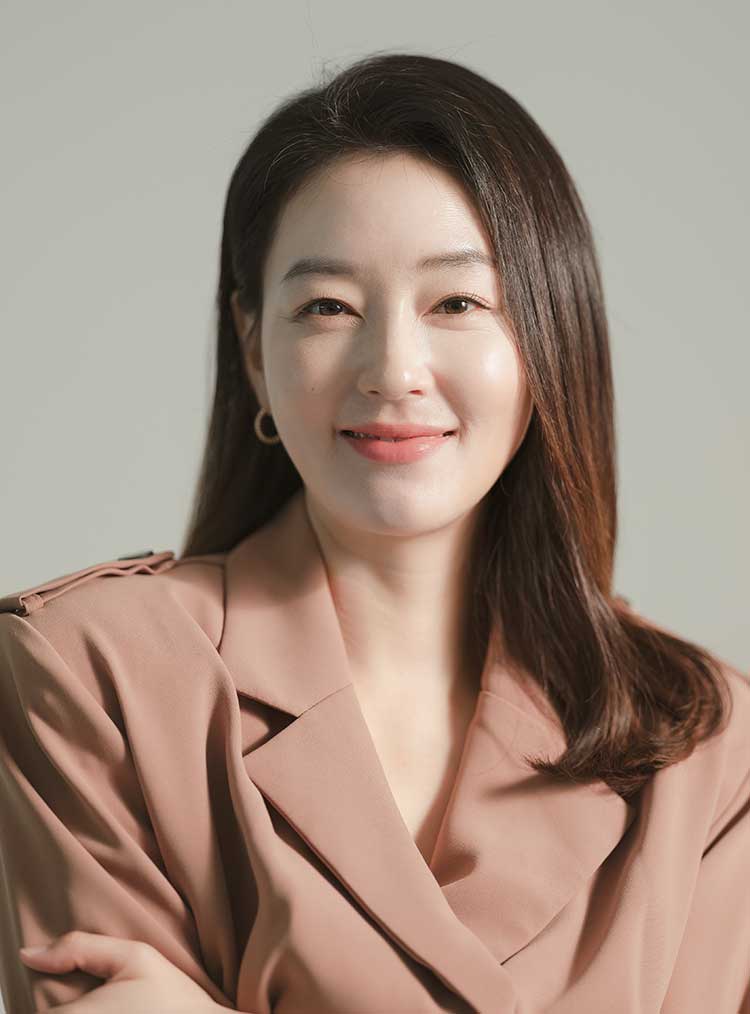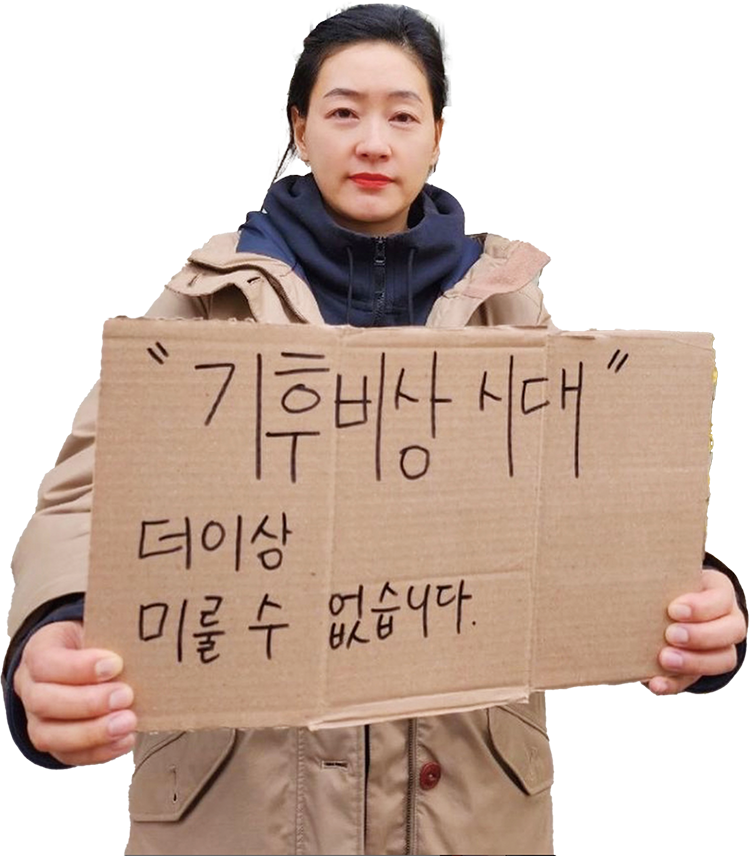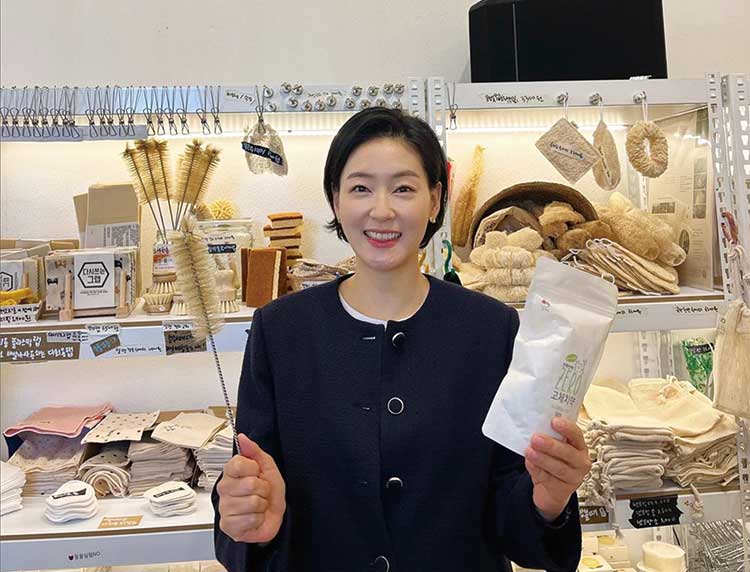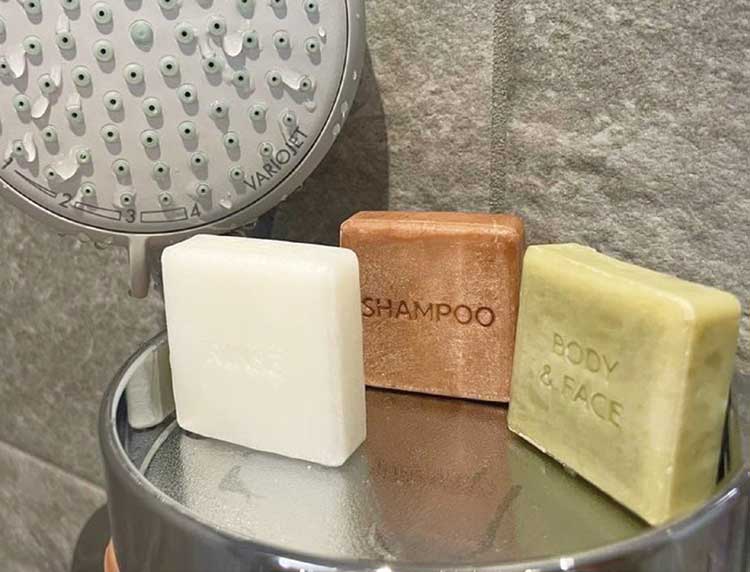-
 2023. May VOL. 662
2023. May VOL. 662

Ecobrity, a portmanteau of eco and celebrity, refers to celebrities who are actively concerned about the climate crisis and involved in environmental protection. Actress Jini Park, one of the leading ecobrities in South Korea has been actively involved in zero-waste and pro-environmental activities. Since her debut in the TV drama <Start> in 1996, Park has been keen on tackling environmental issues, serving as an ambassador of the Eco Campaign for Seoul International Eco Film Festival.
“I guess I was influenced a lot by my ‘mother’ to get involved in environmental issues. My mother always taught me respect for life and nature, so I was influenced as an adult to care about nature. Whenever she saw flowers bloom or fruit born on plants, she would be amazed and thankful to mother nature. And she always told me to treat all living things with respect no matter how small they are. She still tells me so. A love for nature my mother has shown me has made a lasting impression on me from early on to care about the environment. Now, I get involved in as many activities as possible to protect and enjoy nature that I love and care about.”
Known as ‘Eco Jini(@eco_jini)’ on Instagram, she shares her zero-waste lifestyle and personal thoughts on environmental issues. She says she feels encouraged and rewarded by comments others post on her Instagram account to express their support, because tackling environmental issues requires many individuals contributing to collective efforts. Recently, a major concern of hers is global warming.
“Over the recent few years, the climate in South Korea has been getting more humid and hotter like that of Southeast Asia. Since I can sense the changing climate personally, it makes me worried. If the average global temperature rises 2 ℃, the damage would be immense. The average global temperature has already risen about 1.6 ℃, and it won’t be too long before it will increase by 2 ℃ at the present rate. In fact, scientists are deeply concerned about natural disasters that are occurring globally. With an awareness of what all this means, we have no choice but to care about environment. We have only 0.4 ℃ before the climate crisis is full-fledged. We must stop right now, think and do something to ensure sustainability of our human race. I think this is our last opportunity.”
 She held a sign that read, ‘We’re facing a climate emergency. Act now!’ to elevate public awareness of the climate crisis.
She held a sign that read, ‘We’re facing a climate emergency. Act now!’ to elevate public awareness of the climate crisis.
What does she do to adopt zero-waste practices? She uses reusable items instead of disposable ones. When she goes to work for a filming shoot, she brings her own thermos filled with water to drink during the day and another thermos for a drink she buys. She also carries her own bamboo utensils, instead of disposable chopsticks and spoons, as well as a cloth handkerchief, instead of disposable wet wipes.
“It may be convenient to use tissues and wet wipes since you can use and throw them away. But if we can’t stop opting for convenience, we won’t make even small changes that add up.” When she uses a handkerchief instead of tissues, she feels proud, telling herself, ‘Yes, Jini, you’re doing great to resist the temptation of convenience.’ She also replaced her shampoos, conditioners and dishwashing liquids with soap.
She uses a shampoo bar, not liquid shampoo, a conditioner bar, not liquid conditioner, and a dish soap, not dishwashing liquid. Some people wonder what ‘○○ bar’ is. It is soap, to put it simply. One of the great things about using soap bars is that no disposable plastic container or packaging waste is generated. If a family of four members do not use liquid shampoos, conditioners, body cleansers, dishwashing liquids and liquid detergents, a considerable amount of plastic waste can be reduced in a year. She emphasizes that using less plastic is the first step we must take in our daily life to protect the environment.
”I think using soap nuts when doing laundry is a great idea. Soap nuts are the dried shell of the soapberry nut about the size of half my thumb. You can use one soap nut for 1kg of laundry. You can reuse it 4 ~ 5 times, which makes your laundry washing 100% eco-friendly.”
Park adopts zero-waste practices in many other ways too. For example, she fills a large bowl with water to wash dishes in it, rather than running tap water, and waits until the laundry gets to a sufficiently large amount before running the washer. Like everyone else, a daily routine of hers is to separate the trash for recycling.
 Eco-friendly products that Park bought at ‘Almang Store’, a zero-waste products store
Eco-friendly products that Park bought at ‘Almang Store’, a zero-waste products store
 Shampoo bar, condition bar and facial bar Park is currently using
Shampoo bar, condition bar and facial bar Park is currently using
Whenever she talks about environmental protection, people ask her how they can get involved. If you are interested in environmental issues, she recommends they watch the animated film <The Spiriting Away of Sen and Chihiro> and <The Herd>, and read <There Is No Second Earth> by Tyler Rasch. She also suggests they visit a zero-waste store including ‘Almang Store.’ If you go and see eco-friendly products for yourself, you will be able to find products that you like.
“What I think is the most important step to become a zero waster is that you practice it in a way that makes you happy. You can’t change everything through eco-friendly practices overnight. If you can find things you can do to help the environment and do them, that makes you an environmental activist. Let’s keep this in mind.”
‘Practice sustainability in a way that makes you happy.’ This is the gist of Park’s advice to those who are beginning to adopt zero-waste practices.
For example, you can search for articles, policies or events on environmental issues, click ‘like’ and leave ‘supportive’ comments. All the small contributions you make will add up to form a big impact. She believes small actions do make a great change when combined together.